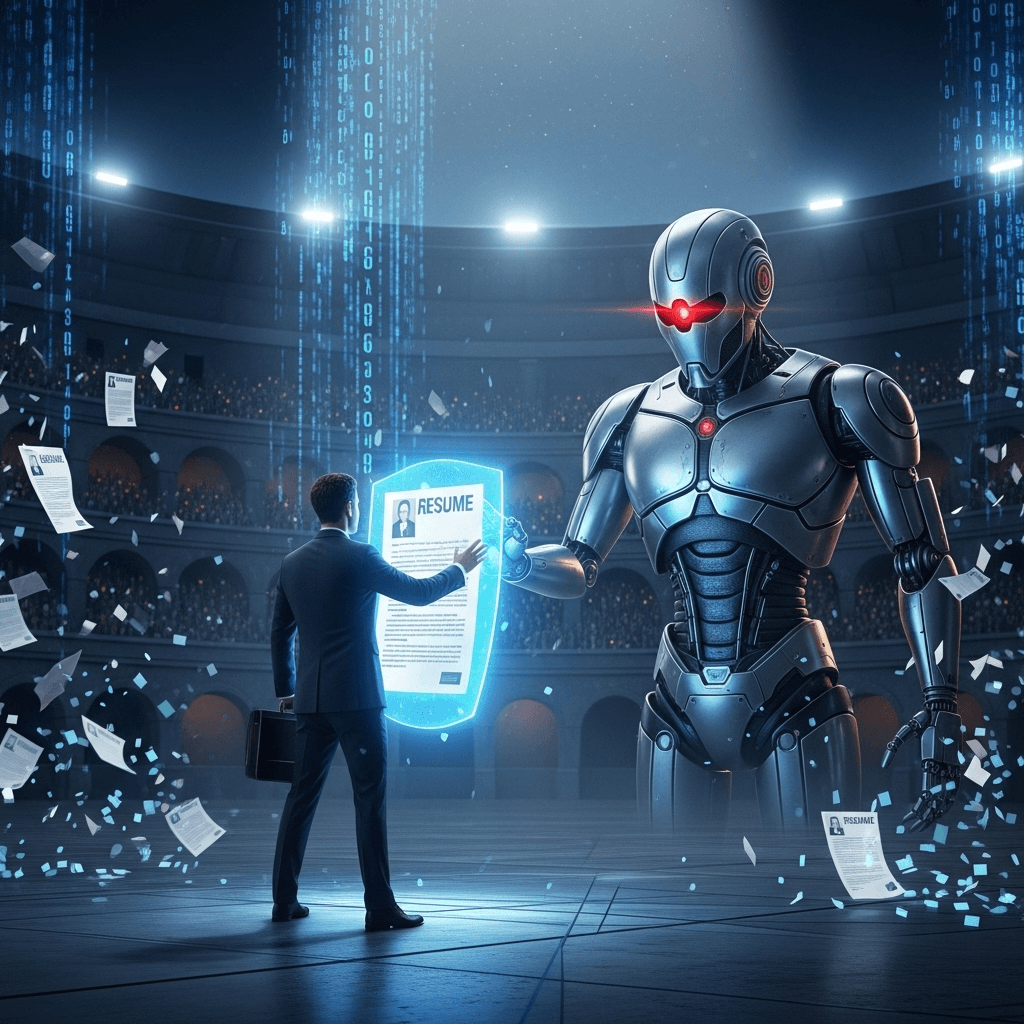Future-Proofing Your Career: 5 Essential Skills to Develop in the Age of AI

The world of work is transforming at a dizzying pace. The rise of Artificial Intelligence (AI) and automation is reshaping industries, redefining job roles, and shifting the very nature of what it means to be a valuable professional. It's natural to feel a sense of uncertainty, but this technological wave isn't a tide to be feared—it's an opportunity to be seized. The key isn't to compete with AI, but to cultivate the uniquely human skills that AI cannot replicate.
By focusing on your personal and professional development now, you can build a resilient, adaptable, and truly future-proof career. Let's explore the five most essential skills that will not only keep you relevant but make you indispensable in the years to come.
The 5 Essential Skills for a Future-Proof Career
1. Emotional Intelligence (EQ)
While AI can process data and recognize patterns, it lacks genuine empathy, self-awareness, and nuanced social understanding. Emotional intelligence is the ability to perceive, understand, manage, and effectively use your own emotions, as well as recognize and influence the emotions of others. In a world where technical tasks can be automated, the ability to collaborate, lead with compassion, and build strong client relationships becomes a premium asset.
How to Develop It:
Practice Active Listening: When someone is speaking, focus entirely on their words and non-verbal cues without planning your response.
Develop Self-Awareness: Take time to reflect on your feelings and how they impact your actions. Journaling or practicing mindfulness can be powerful tools.
Seek Feedback: Ask trusted colleagues or mentors for honest feedback on your communication style and interpersonal skills.
Practice Empathy: Make a conscious effort to see situations from another person’s perspective before passing judgment.
2. Complex Problem-Solving
AI is brilliant at solving problems with clear parameters and vast datasets. Where it falls short is in navigating ambiguity, dealing with incomplete information, and framing the right questions for novel, multifaceted challenges. Complex problem-solving is the ability to identify the core issues within an intricate situation and devise effective, often creative, solutions. Professionals who can look at a messy, real-world problem and chart a strategic path forward will be invaluable.
How to Develop It:
Break Down Problems: Practice deconstructing a large challenge into smaller, more manageable components.
Work Through Case Studies: Engage with business or industry case studies to analyze how others have tackled complex issues.
Ask "Why" Repeatedly: Use the "5 Whys" technique to drill down past surface-level symptoms and uncover the root cause of a problem.
Collaborate with Diverse Teams: Work with people from different backgrounds and disciplines to gain new perspectives on problem-solving.
3. Creativity and Innovation
Creativity is the engine of progress. It's the ability to connect seemingly unrelated concepts, imagine what doesn't yet exist, and generate original ideas. While generative AI can produce impressive text, images, and code based on existing patterns, it doesn't possess human consciousness, experience, or the spark of true originality. The ability to think outside the box—whether you're designing a new product, crafting a marketing strategy, or streamlining a process—is a fundamentally human trait that drives business forward.
How to Develop It:
Cultivate Curiosity: Read widely, watch documentaries, and learn about subjects outside of your immediate field.
Schedule Time for Brainstorming: Set aside time to think freely without judgment or a specific goal. Let your mind wander.
Engage in Creative Hobbies: Whether it's painting, playing a musical instrument, or creative writing, hobbies can strengthen your creative muscles.
Reframe Failure as Learning: Don't be afraid to try new things and fail. Every attempt provides valuable data for the next one.
4. Digital Literacy and Data Fluency
To thrive in the future, you won't be working *against* AI; you'll be working *with* it. This is why advanced digital literacy is non-negotiable. This goes beyond knowing how to use a computer. It means understanding how to leverage digital tools to work more efficiently, critically evaluating online information, safeguarding against digital threats, and—crucially—speaking the language of data. Being able to interpret data, understand its limitations, and use it to make informed, strategic decisions is a critical skill for any modern professional.
How to Develop It:
Experiment with AI Tools: Get hands-on with AI platforms like ChatGPT, Midjourney, or other industry-specific tools to understand their capabilities and limitations.
Take an Online Course: Platforms like Coursera, edX, and LinkedIn Learning offer courses on everything from data analysis fundamentals to AI ethics.
Learn to Visualize Data: Familiarize yourself with tools like Tableau or even the advanced charting features in Excel to turn raw numbers into compelling stories.
Stay Informed on Tech Trends: Follow reputable tech news sources to stay aware of the latest developments in AI and digital technology.
5. Adaptability and Continuous Learning
Perhaps the most critical skill of all is the mindset that underpins the others: a commitment to lifelong learning. The skills that are in demand today may not be the ones in demand five years from now. Adaptability is the ability to embrace change, unlearn old methods, and quickly acquire new skills. Professionals who possess a "growth mindset"—the belief that their abilities can be developed through dedication and hard work—will see change not as a threat, but as a constant stream of new opportunities to grow.
How to Develop It:
Set Learning Goals: Actively set quarterly or yearly goals for acquiring a new skill or deepening your knowledge in a specific area.
Step Outside Your Comfort Zone: Volunteer for projects or tasks that stretch your current abilities.
Build a Personal Learning Network: Connect with other professionals in your field to share knowledge and learn from each other's experiences.
Embrace a "Beginner's Mind": Approach new subjects with humility and an eagerness to learn, regardless of your level of seniority.
Your Career, Reimagined
The future of work is not about human versus machine. It is about human plus machine. By investing in these five essential skills, you are not just preparing for an uncertain future; you are actively building a more dynamic, engaging, and rewarding career. Start today by choosing one area to focus on. Take a small step, then another. The future belongs to those who are curious, empathetic, and always ready to learn.


